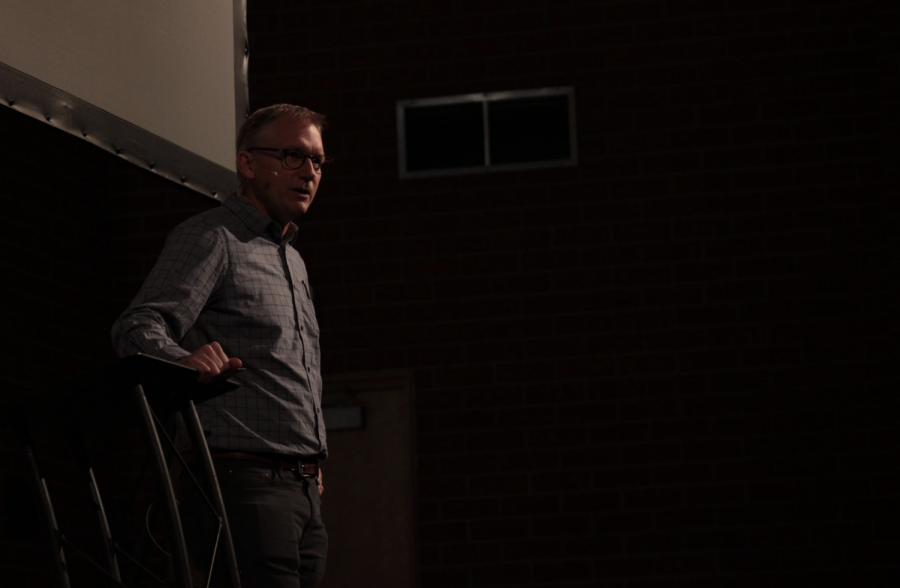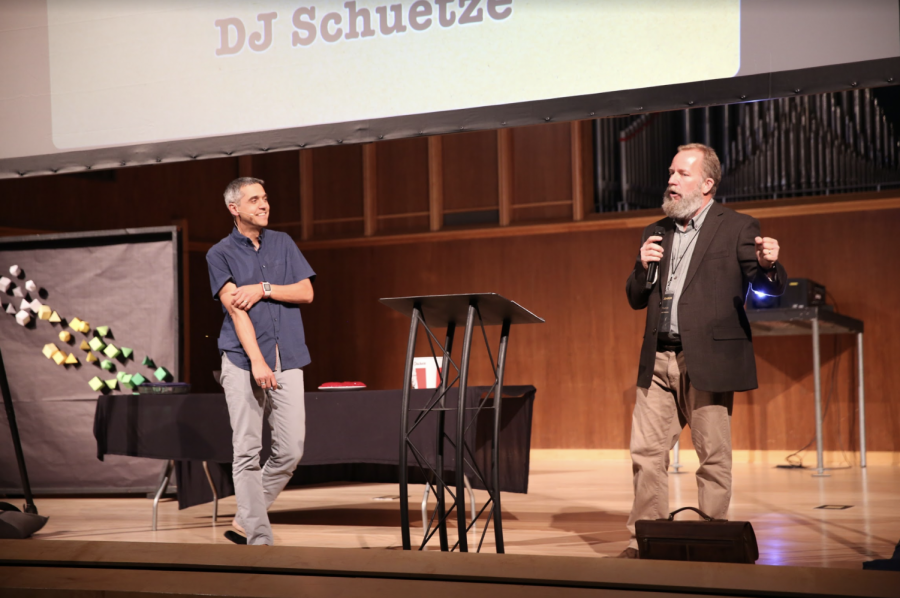Compelling us to stand in awe of the creation of the great I Am, the second session of the 86th annual Missions Conference opened with artist John Crowe creating a painting on-stage for the audience. With intense music fueling the creation, Block transformed the blank, nine-box canvas stroke by stroke into a thoughtful masterpiece depicting the crucifixion of Christ, providing a perfect segway into the session’s message of what it means to be compelled.
The Executive Director of LifeWay Research Ed Stetzer, author and editor for Christianity Today, focused on the text of 2 Corinthians 5:16-21 and the idea of what it means to be compelled by the great I Am. Using the message of Paul to encourage the Corinthian church, Stetzer set forth the definition of compelled as “representing Jesus and his kingdom well.” We need to be compelled to move for the greater glory of God to engage the world with the gospel of Christ.
First focusing on verses 16 and 17 in which we understand things “no longer in a purely human way,” Stetzer remarked that because we as Christians have a new life in Christ, we now should have a new outlook on the world around us. Rather than seeing people through the lens and standards of the world, we now are compelled to see people through God’s lens and his standards. With this new perspective, we are then “sent on a mission of reconciliation” (2 Cor. 5:18-19) to tell the good news of Christ and reconcile all people to him. Referencing Luke 4:18 and Luke 19:10, Stetzer explained that our ministry of reconciliation is modeled after Christ who came to “seek and save the lost” (Lk.19:10) and serve the hurting (Lk. 4:18-19). As the word “reconciled” is used five separate times in these five verses, we need to come to understand that the call of missions is not relegated only to those willing to travel overseas, but rather this ministry of reconciliation compels all Christians to act missionally wherever they are. Furthermore, this ministry of reconciliation puts Christians in the role of ambassador where, as said by Stetzer, “We plead on Christ’s behalf to the people to be reconciled to God.”
The world is ultimately broken and lost, stained by sin and we as Christians are called to be his agents of restoration, gospel demonstration and gospel proclamation to show and share the love of Jesus to this broken world.
All of this however, is impossible without the salvific work of Christ on the cross (2 Cor 5:21). Using his personal example of falling into a septic tank, Stetzer urged us to consider the filth and sin that was put upon Christ and that Christ — fully God and fully man — became our sin that we might become his righteousness. This concept underscores the entire message of the passage.
“Jesus didn’t just die for your sin, he died by becoming your sin,” Stetzer said.
Jesus became the filth of humanity’s sin. When we know this boundless love, we know why we can have a new perspective, a ministry of reconciliation and represent Jesus. It is because of the cross. The truth of the cross compels us to love.










